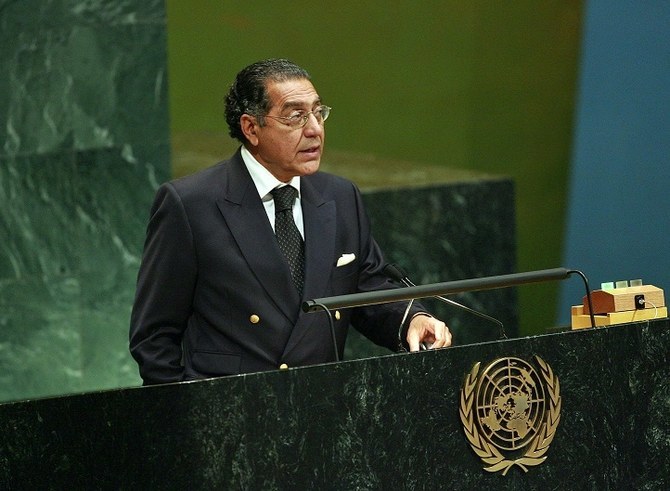ISLAMABAD: A top Pakistani diplomat has drawn the United Nations’ attention to what Pakistan calls India’s massive arms build-up and its attempts to “nuclearize” the Indian Ocean, saying Pakistan would maintain full-spectrum deterrence against any potential threat.
Pakistan and India routinely trade such diatribes, most frequently over the disputed Himalayan region of Kashmir that has been a flashpoint between the arch-foes since their independence from British rule in 1947.
Both countries control parts of the disputed region but claim it in full. In 2019, India withdrew Indian-administered Kashmir’s autonomy in order to tighten its grip over the territory, sparking outrage in Pakistan, the downgrading of diplomatic ties and the suspension of bilateral trade.
The state-run APP news agency on Tuesday quoted Pakistani Ambassador Munir Akram as telling the UN that India’s “oppressive policies “in Kashmir were accompanied by the quest for regional hegemony and “great power” status.
He said New Delhi spent $73 billion last year on the acquisition and development of new conventional and non-conventional land, air and sea weapons systems for this purpose.
“India has also nuclearized the Indian Ocean; deployed anti-ballistic missile systems; acquired anti-satellite weapons; and increased the range and sophistication of all its delivery systems,” the Pakistani diplomat said at the UN General Assembly’s First Committee, which deals with disarmament and international security matters.
“Those states which so eagerly provide these advanced weapons systems and technologies to India must know that 70 percent of India’s weaponry and forces are deployed against Pakistan, not to serve its promised role as a counter to the rising Asian great power in the so-called ‘Indo-Pacific’ region. And, India has operationalized its dangerous doctrines of pre-emptive aggression against Pakistan.”
Describing these actions as a violation of UN Security Council resolutions, Akram said Pakistan would do whatever it took to maintain a full-spectrum deterrence to prevent and defeat Indian aggression.
Akram’s comments come a month after the two arch-foes clashed at the UN as Pakistani Prime Minister Imran Khan accused India of a “reign of terror” on Muslims, drawing a stern rebuke.
“The worst and most pervasive form of Islamophobia now rules India,” Khan said in an address, delivered by video due to COVID-19 precautions.
While India often ignores Pakistan’s statements at the world body, a young Indian diplomat on the floor exercised the right to respond to Khan.
Sneha Dubey, a first secretary at India’s UN mission, accused Pakistan of sheltering and glorifying Al-Qaeda mastermind Osama bin Laden who was killed by US special forces in a 2011 raid in the army city of Abbottabad.
“This is the country which is an arsonist disguising itself as a firefighter,” she said.
Her reply triggered yet another response as Pakistani diplomat Saima Saleem took issue with Dubey’s contention that Kashmir, which is partially controlled by Islamabad, was an internal issue.
The two countries have fought two of their three wars over the disputed region.
















